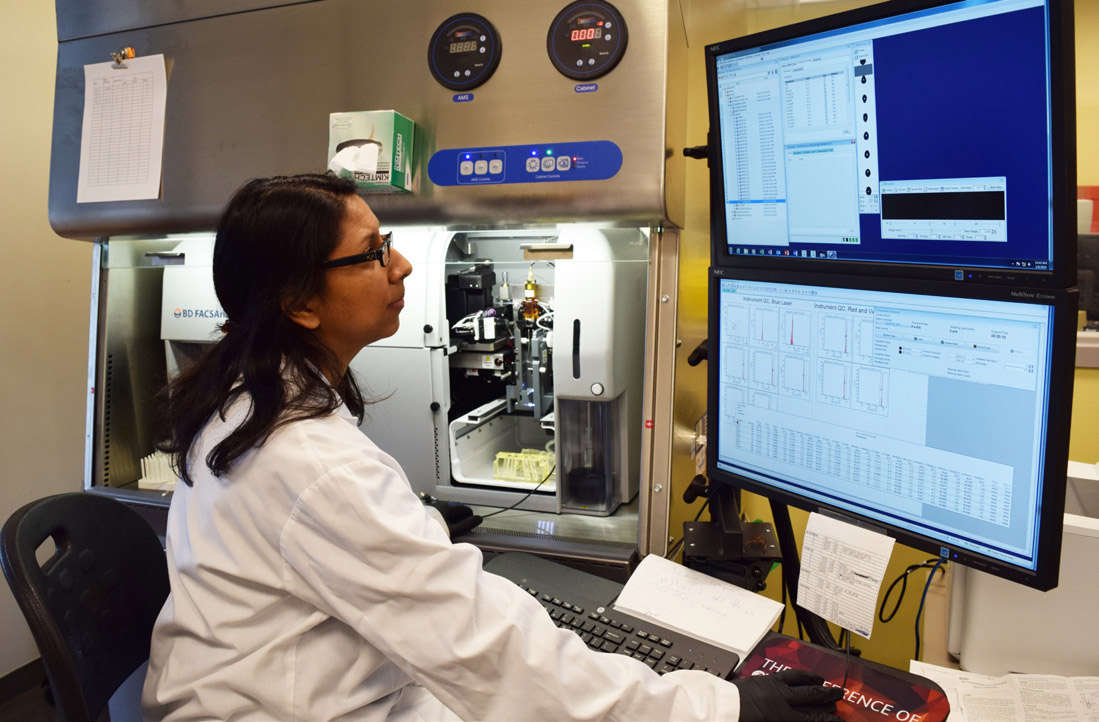Tool Kit: BD FACSAria Fusion
In September 2018, Sunnybrook Research Institute (SRI) installed a new high-performance cell sorter in its Centre for Flow Cytometry and Microscopy. The BD Biosciences FACSAria Fusion is the next generation of the BD FACSAria sorter, which SRI acquired in 2002 and is also housed in the centre.
“This has been a life-saver for me,” says Dr. Geneve Awong, who manages the flow cytometry facility. She notes the Fusion enables her to sort samples that are labeled with more fluorescent probes. The new sorter is a 16-parameter, 14-colour instrument that allows more highly defined cell populations to be purified. “It has four lasers—blue, red, violet and a yellow-green. Before acquiring the Fusion, some of my users were limited in the fluorescent proteins they could use because the Aria didn’t have a yellow-green laser, which is needed to excite specific fluorescent molecules such as mCherry,” she says.
That it is contained in a biosafety cabinet is another big plus. “This is great because we can sort samples and maintain sterility,” Awong says. Sterility is critical for studies where researchers need to assess cell development or function. For example, some groups inject the purified cells into a preclinical model to see whether the cells will engraft. The cabinet also protects the operator from aerosol exposure.
The lasers and nozzle, through which cells pass, are automatically aligned; their fixed positions ensure that results are reproducible. There are three nozzle sizes, designed to fit small, medium and large cells.
Like all core facility equipment, the sorter is available to internal and external researchers. At SRI, Dr. Juan Carlos Zúñiga- Pflücker is a heavy user of the machine, sorting stem cells and coaxing them into human T cells in a Petri dish. Dr. Marc Jeschke is another, using a different kind of stem cell to test preclinically whether they can be used to treat burns. Drs. Michele Anderson and Carol Schuurmans also make use of it.
The system can sort between 20 million and 70 million cells per hour, depending on the nozzle used. “The bigger the cell, the slower the speed; smaller cells run on a smaller nozzle and can be run at higher speeds,” Awong says.
Owing to the expertise required to operate the sorters, users must contact Awong to get started. The Fusion is worth $796,000. It was paid for by SRI and in-kind contributions from BD Biosciences.



